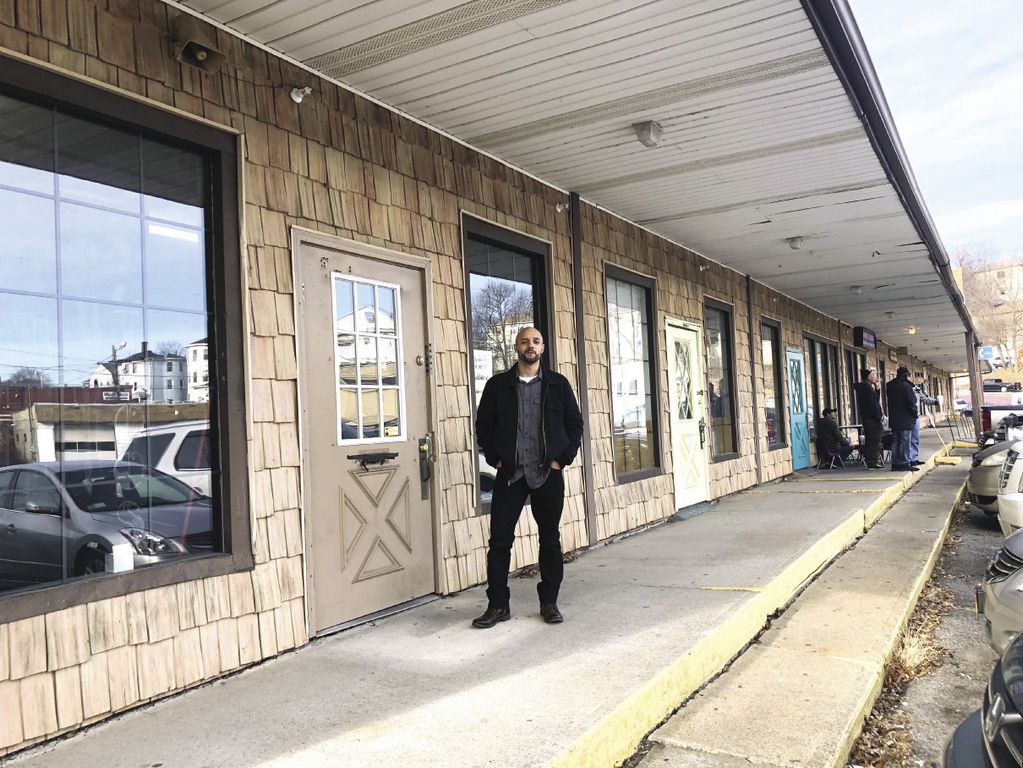As the newly legalized recreational and medical marijuana industry started to yield more and more business openings starting in late 2018 and into 2019, it became clear the industry was dominated by white males.
Get Instant Access to This Article
Subscribe to Worcester Business Journal and get immediate access to all of our subscriber-only content and much more.
- Critical Central Massachusetts business news updated daily.
- Immediate access to all subscriber-only content on our website.
- Bi-weekly print or digital editions of our award-winning publication.
- Special bonus issues like the WBJ Book of Lists.
- Exclusive ticket prize draws for our in-person events.
Click here to purchase a paywall bypass link for this article.
Every year, WBJ uses its special Economic Forecast edition to look ahead at what is expected to come in the following year, while reflecting on the ups and downs of the previous 11.5 months. And for the past two years, this has afforded me the opportunity to pick the Central Massachusetts business professional who best embodies the region’s recent past and near future.

In 2017, my favorite business person was The Queen’s Cups bakery owner Renee Diaz, whose joys and sorrows in opening a new location in Worcester’s Canal District – and her honest assessment of how the move was progressing – reflected the two-steps-forward, one-step-backward economic development progress at the time. In 2018, my favorite was Worcester Bravehearts General Manager Dave Peterson, as his fiery outburst at the Worcester City Council as it finalized a deal with the Pawtucket Red Sox to move the minor league baseball team to a $101-million municipal stadium in the Canal District showed the casualties of progress as the region reaches for shiny, new things.
For 2019, my favorite business person is marijuana entrepreneur Ross Bradshaw, who plans to open a dispensary called New Día sometime this spring in Worcester.

As the newly legalized recreational and medical marijuana industry started to yield more and more business openings starting in late 2018 and into 2019, it became clear the industry was dominated by white males. Even today, 87% of all Massachusetts marijuana businesses don’t identify as owned by women, people of color, veterans, LGBTQ or the disabled.
Because the marijuana industry remains illegal federally, banking and finance services are hard to come by, so the early Massachusetts cannabis business applicants were people who already had the financial wherewithal – either by themselves or with private fundraising – to shoulder the enormous upfront costs and withstand the long regulatory process, as the expenses piled up.
Yet, when voters legalized recreational marijuana in a 2016 ballot initiative, the goal was for the industry to disproportionately help communities impacted most by the War on Drugs, such as African Americans who in 2014 in Massachusetts made up 41% of marijuana sales arrests and 24% of possession arrests, despite comprising 8% of the population. As the industry has matured over the last year, the state Cannabis Control Commission has prioritized making it easier for so-called economic empowerment applicants – people of color and those from disadvantaged communities – to obtain licenses and open marijuana businesses.
Bradshaw, who has no criminal record but has friends and relatives who were arrested for drug crimes, saw early on when the first medical marijuana licenses were being approved the industry was skewing disproportionately white, so he decided he didn’t want to see the same thing with recreational licenses.
If the regulatory approval process continues to go smoothly for Bradshaw, he expects to be one of the first economic empowerment applicants to open in the state. New Día already received its special permit from the City of Worcester on Dec. 4 and expects to receive its provisional license from the CCC in January. Final approval to open would then come this spring.
As an observer, I was excited as the marijuana industry picked up steam in 2019: seeing businesses make it to the regulatory finish line, watching the industry encounter new obstacles, and understanding all these closely tracked companies were competing with black market drug dealers. When it became clear the racial makeup of the industry wasn’t aligning with the goals of the 2016 ballot initiative, I wondered if regulators would just let the free market reign and allow the power to remain with a handful of rich, politically connected white men, as seemingly appears to be the case with almost every private industry these days.
Instead, the CCC tackled the issue head on, and entrepreneurs like Bradshaw appear to be close to breaking into the exclusive industry, hopefully setting an example for waves of other economic empowerment applicants to follow.
Opening any marijuana business in Massachusetts is a lesson in defiance and perseverance. Bradshaw’s story is all the more remarkable because he didn’t have the same financial headstart many of the early cannabis licensees had, and he embodies how the state marijuana industry will be about more than dollars and cents.
I have yet to patron any marijuana business since cannabis became legal in Massachusetts. But after New Día opens this year, it will be my first.
Brad Kane is the editor of the Worcester Business Journal.
